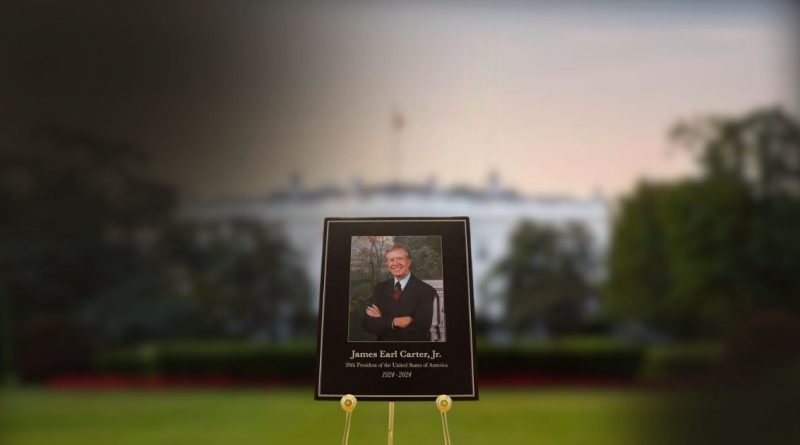Jimmy Carter Lies in State at Capitol Rotunda Ahead of Funeral
Former President Jimmy Carter is currently lying in state at the Capitol Rotunda in Washington, D.C., as the nation prepares to honor his legacy with a funeral service scheduled for later this week. This poignant moment allows citizens and dignitaries alike to pay their respects to a leader who shaped American history during a tumultuous era.
Carter’s presidency was marked by significant challenges, notably his impactful address to the nation in 1979 amid an escalating energy crisis. During this address, he outlined various criticisms of his administration, characterizing the nation as adrift in a moral and spiritual crisis. This candid acknowledgment ultimately became a double-edged sword, giving his opponents, including Ronald Reagan, ammunition to brand him as a pessimistic and uninspiring figure.
Despite the hurdles he faced, many believed that Carter’s adept handling of foreign affairs during the Cold War could bolster his chances for reelection. However, the rise of revolutionary Islam and mounting geopolitical tensions would conspire against him and eventually lead to his exit from the White House.
A defining event during his presidency was the Iran hostage crisis, which began in October 1979. The crisis ignited when the United States permitted exiled Iranian Shah Reza Pahlavi to enter the country for medical treatment, provoking outrage among Iranian revolutionaries who demanded his return for trial. The situation escalated on November 4, 1979, when students supportive of the Islamic revolution stormed the U.S. Embassy in Tehran, taking 66 Americans hostage.
The ensuing 444-day standoff captivated and strained the national sentiment, as daily news updates on the hostages deepened public discontent and severely impacted Carter’s chances for a second term. An ill-fated rescue operation, which resulted in the tragic deaths of eight servicemen, further undermined his presidency.
At the same time, geopolitical anxieties escalated following the Soviet invasion of Afghanistan in December 1979. Carter responded by boycotting the Summer Olympics in Moscow and urging the Senate to postpone ratifying the Strategic Arms Limitations Talks (SALT II) treaty.
As the election date in November 1980 approached, the effects of Soviet aggression coupled with the protracted hostage crisis painted a bleak picture of American power, leading Carter to reflect in his memoirs on how external events were jeopardizing his political future. He noted, “If the hostages were released, I was convinced my election would be assured; if the expectations of the American people were dashed again, there was little chance I could win.”
During the election campaign, Reagan lambasted Carter’s leadership, suggesting that under his administration, the nation faced inevitable decline. The former actor and governor ultimately secured a resounding victory on Election Day 1980, winning 489 electoral votes. In a final twist of fate, the release of the American hostages occurred just 20 minutes after Reagan’s inauguration on January 20, 1981, marking a poignant end to Carter’s turbulent presidency.
As we gather to honor Jimmy Carter’s life and contributions, we reflect on both his achievements and the profound challenges he faced during his time in office.

